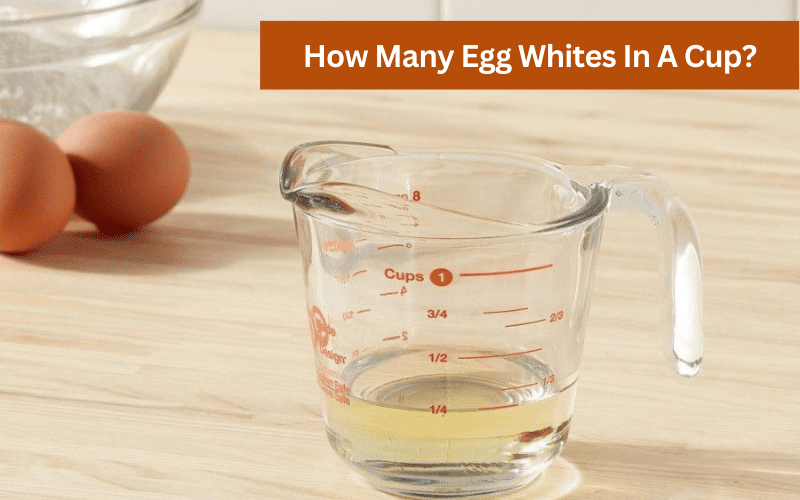When I first started baking, I was always confused about the measurements. One question that kept popping up in my mind was, how many egg whites in a cup? It seemed like a simple question, but I just couldn’t wrap my head around it. As someone who enjoys whipping up sweet treats in the kitchen, it was important for me to get the recipe just right. After some trial and error, I finally found the answer to this burning question. So if you’re like me and wondering how many egg whites in a cup, keep reading!
How do you measure egg whites?
Measuring egg whites accurately is important for achieving desired results in recipes. Here are some ways to measure egg whites:
- Use a liquid measuring cup: Pour the egg whites into a clear liquid measuring cup and read the amount at eye level.
- Use a kitchen scale: Weigh the egg whites in grams or ounces using a kitchen scale. This method is especially helpful when working with large batches of egg whites.
- Count the number of egg whites: If the recipe calls for a specific number of egg whites, simply count them out.
- Use a tablespoon measure: A tablespoon can be used to measure out the egg whites if you don’t have a liquid measuring cup or kitchen scale. One large egg white is approximately 3 tablespoons.
- Use an egg separator: An egg separator is a tool that separates the egg white from the yolk. This method ensures that only the egg whites are measured and used in the recipe.
Regardless of the method used, it’s important to be precise when measuring egg whites to ensure consistent results in your cooking and baking.
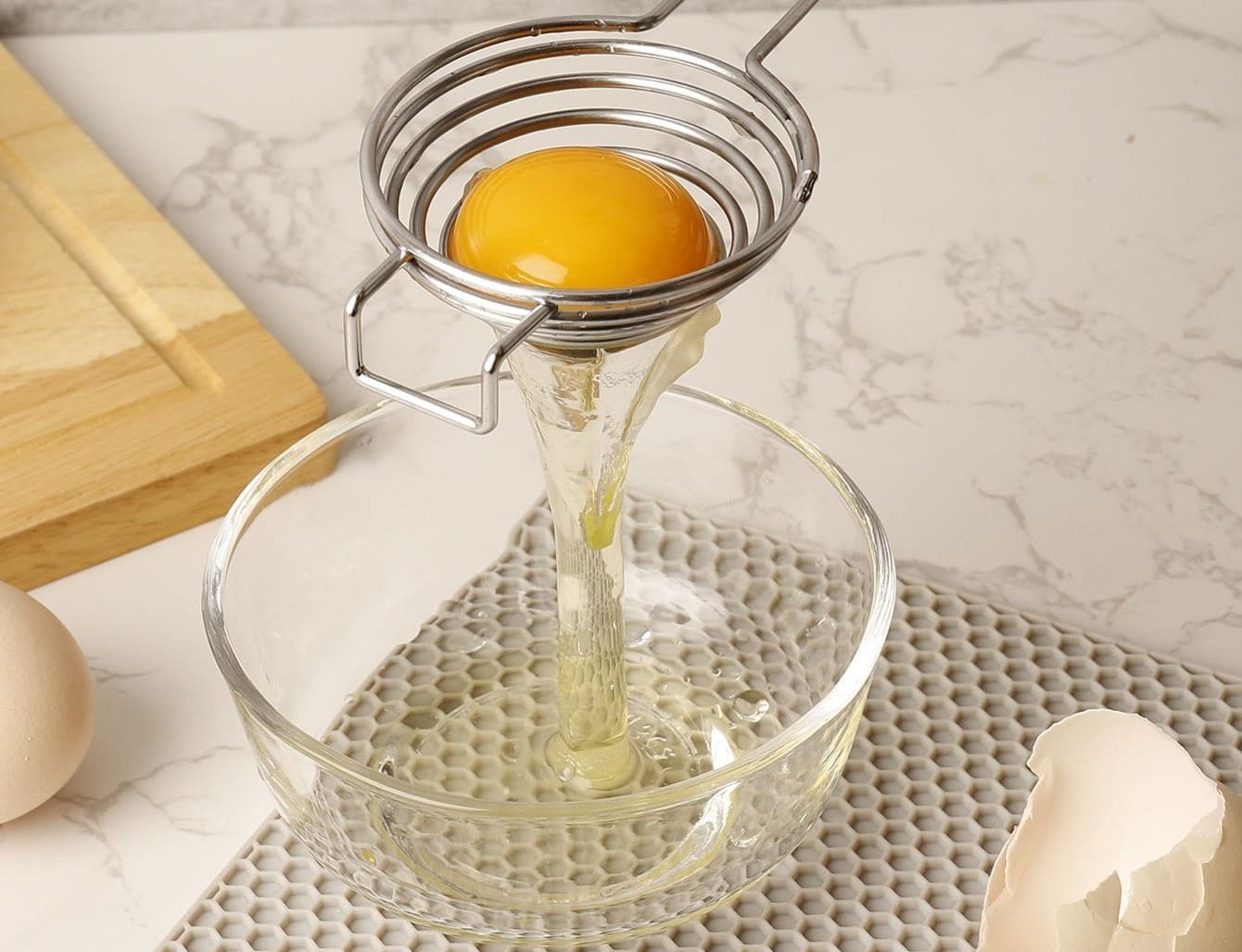
How many egg whites in a cup?
“How many egg whites in a cup?” is a hot topic and you will be answered right now! A cup is a unit of volume measurement commonly used in cooking and baking. When it comes to how many egg whites in a cup, the number of egg whites in a cup will depend on the size of the eggs used. Therefore, a cup of egg whites would require around 8 to 10 large eggs, depending on their size and the efficiency of the beating process.
Albumen also helps to bind water and give structure to food products. Egg whites are a source of vitamins and minerals, including vitamin A, vitamin B2, vitamin B6, vitamin D, zinc, and selenium. They also contain antioxidants that may help protect against cancer and other diseases.
So now you know how many egg whites in one cup!
How many egg yolks in 1 cup?
It can be tricky to measure out the right amount of yolks needed, especially if you’re dealing with a recipe that calls for a specific amount. However, a general rule of thumb is that 2 to 16 large egg yolks are equal to one cup. So next time you’re separating eggs for a recipe, keep this measurement in mind to ensure you have the right amount of yolks to make your dish delicious.
How many mls in an egg cup?
If you’re looking to measure ingredients precisely for your recipe, you might be wondering how many milliliters (mls) are in an egg cup. Unfortunately, there is no standard size for an egg cup, as they can vary in size and shape. However, on average, an egg cup can hold approximately 30 to 45 ml of liquid. Keep in mind that this measurement is just an estimate, so it’s always best to double-check your measurements with a measuring cup or scale for accuracy.
100 grams of egg white equals to how many eggs
Eggs are a versatile ingredient used in many recipes, and it’s important to get the measurements right to ensure your dish turns out just right. If you’re wondering how many eggs you need to get 100 grams of egg white, the answer is approximately two large eggs. Two large eggs typically contain around 100 grams of egg white, which can be helpful to know when you need to adjust a recipe’s ingredient measurements.
How many eggs in 1 cup egg substitute?
Egg substitutes are a popular alternative to using real eggs in recipes, especially for those who have dietary restrictions or allergies. If you’re using egg substitute in a recipe and need to know how many egg whites in a cup of egg substitute, the answer is four. This is because one egg is equal to 1/4 cup of egg substitute, and four times 1/4 cup equals one cup. So if your recipe calls for one cup of egg substitute, you can substitute it with four eggs worth of egg substitute to achieve the same texture and consistency in your dish.
How many egg white in 1/2 cup?
When it comes to cooking or baking with egg whites, it’s important to know how to measure them accurately. If a recipe calls for 1/2 cup of egg whites, you’ll need four large egg whites to achieve that measurement. This can be a helpful conversion to keep in mind when adjusting recipes or making substitutions.
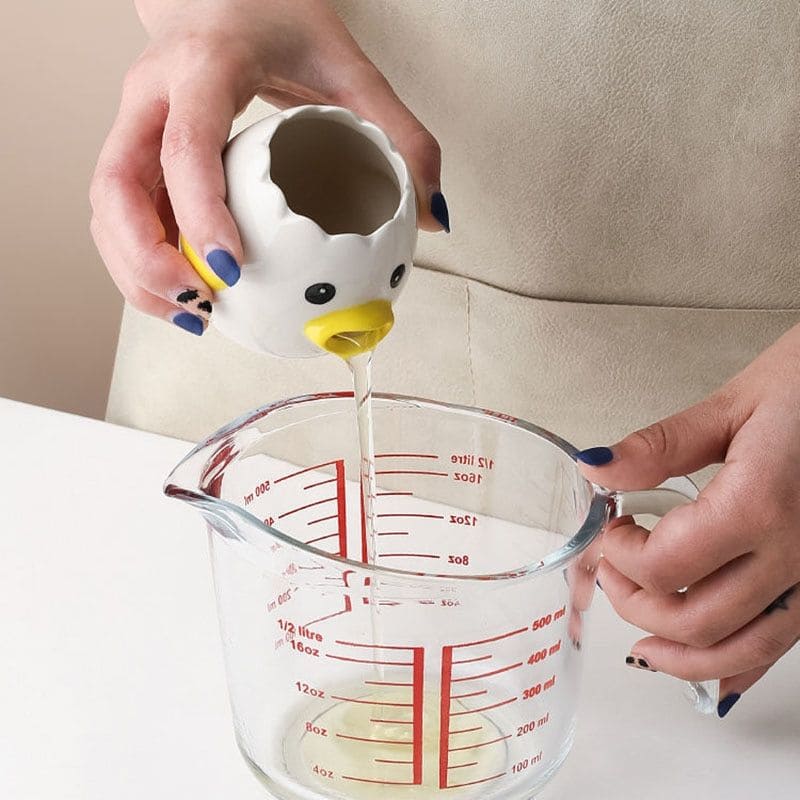
How many grams egg white in a cup?
To measure egg whites by weight, it’s helpful to know how many grams are in a cup. One cup of egg whites weighs around 245 grams, which can vary slightly depending on the size of the eggs used. This measurement is particularly useful when a recipe requires a specific weight of egg whites rather than a volume measurement.
How many cups is 4 egg whites?
4 egg whites are the equivalent of a half cup. Egg whites are often used as a measurement for other ingredients since they are a common item that most people have on hand.
When using egg whites as a measurement, it is important to note that not all eggs are the same size
How many cups is 5 egg whites?
If you have 5 egg whites, that is equivalent to 1/3 cup of liquid. Typically, one large egg white contains around 3 tablespoons of liquid when beaten. So, 5 egg whites would add up to 15 tablespoons of liquid, which is equivalent to 1/3 cup. It’s important to keep in mind that the size of the eggs can vary, which would affect the amount of liquid produced by each egg white. Additionally, it’s important to measure carefully when following a recipe that calls for a specific amount of egg whites to ensure accurate results.
The best recipes with egg
Eggs are a versatile ingredient in cooking and baking, and there are countless recipes that showcase their flavor and texture. Whether you’re looking for a savory breakfast dish or a sweet dessert, there are many delicious recipes that feature eggs as a key ingredient.
How to make the perfect omelet?
Ingredients:
- 1/2 cup diced onion
- 1/2 red bell pepper, diced
- 1/2 green bell pepper, diced
- 1 tablespoon olive oil
- 6 eggs
- Salt and freshly ground black pepper to taste
- 1/4 cup grated cheddar cheese
- 1 green onion, thinly sliced
- Instructions:
1. In a large skillet over medium heat, sauté onions and peppers in olive oil until they are soft.
2. Meanwhile, whisk together eggs, salt, and pepper.
3. Pour the mixture into the skillet over the vegetables and cook until the eggs are set and the omelet is golden brown on both sides.
4. Sprinkle grated cheese over the top and allow it to melt.
5. Fold the omelet in half and serve with a sprinkle of green onions on top.
How to scramble eggs?
The best way to scramble eggs is to add a tablespoon of water for every four eggs, then beat them together until they’re smooth. Heat a tablespoon of oil in a large pan over medium heat, then pour in the eggs. Use a spatula to scramble them around until they’re cooked through, about five minutes. Serve hot!
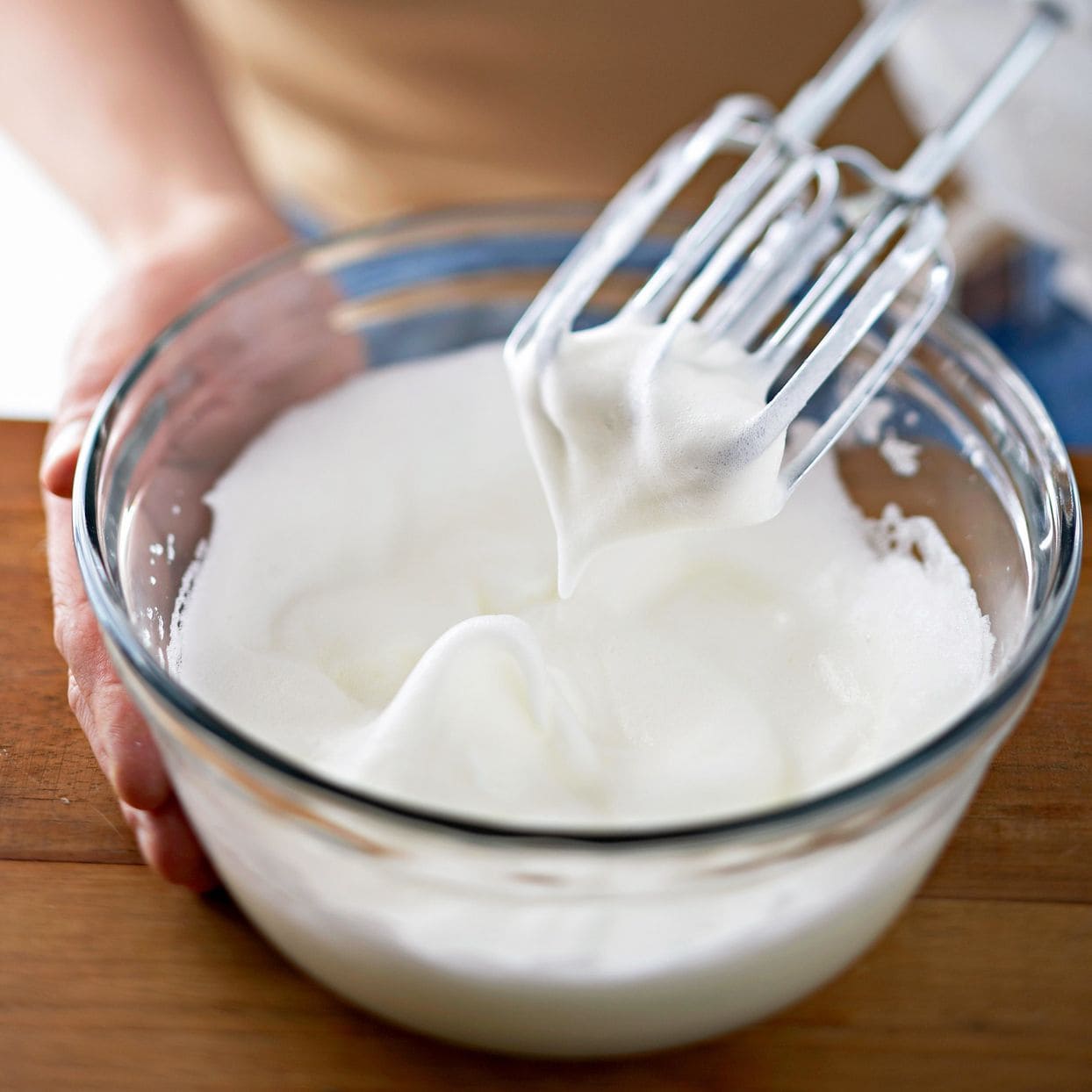
What’s the difference between an omelet and a scramble?
There are many differences between an omelet and a scramble, the most notable being the preparation method.
- To make an omelet, you must first whip the eggs until they are light and fluffy. Then, pour them into a hot pan that has been coated with cooking spray or butter.
As the eggs cook, use a spatula to lift the edges of the omelet so that the uncooked egg can flow underneath. When the omelet is nearly cooked through, add your desired fillings to the center and fold it over.
- To make a scramble, simply whisk together your eggs and ingredients and cook them in a pan until they are firm but not dry.
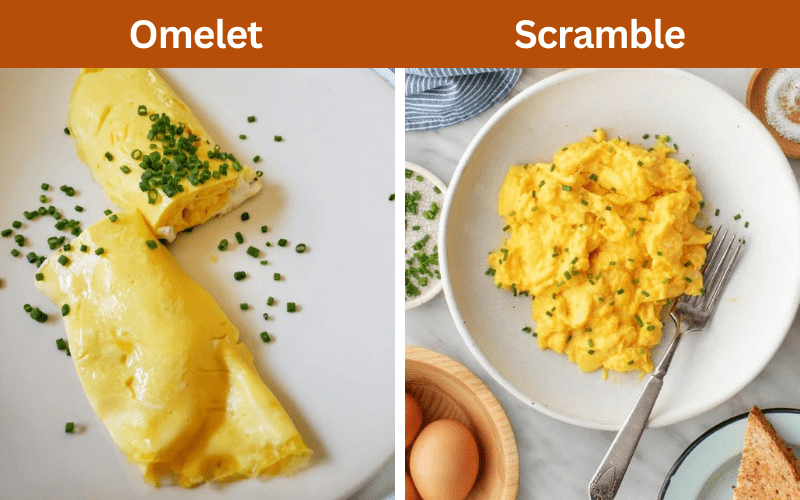
Can you make an omelet without milk?
Milk is a common ingredient in omelets, but it is not necessary. You can make an omelet without milk by using other liquids such as water, stock, or even wine.
If you are looking for a low-fat option, you can also use broth or non-dairy milk substitutes like soy milk, almond milk, or rice milk. Omelets are versatile dishes and there are many different ways to customize them.
You can add vegetables, meat, or cheese to your omelet, or you can keep it simple with just a few ingredients. Whether you are a beginner or an experienced cook, omelets are a great way to show off your culinary skills.
How do you fold an omelet?
There are a few different techniques for folding an omelet, but the most common is the French fold. To French fold an omelet, you’ll need a non-stick skillet and a spatula.
- Heat the skillet over medium heat and spray with cooking spray. Once the pan is hot, add the omelet mixture and let it cook for 1-2 minutes or until it’s set.
- Then, use the spatula to lift one edge of the omelet and fold it over to the other side. Continue folding until the omelet is completely folded.
- Let it cook for another minute or two or until the omelet is cooked through. Serve immediately with your favorite toppings.
What’s the best way to cook eggs for breakfast?
Cooking eggs for breakfast is a quick and easy way to start your day, and there are several ways to do it.
The best way to cook eggs for breakfast is to use a non-stick skillet on medium-high heat and add a small amount of oil or butter.
- Add the eggs to the pan and let them cook for about two minutes, then use a spatula to flip them over and cook them for another minute or two.
- You can also scramble the eggs in the pan, or make an omelet by adding some shredded cheese and chopped vegetables.
Whatever method you choose, eggs are a healthy and satisfying way to start your day.
How long do eggs take to boil or fry?
There is no definitive answer to this question as it depends on several factors, such as the size of the egg and the type of stove or burner being used. However, on average, eggs will take around five minutes to boil or fry. It is important to keep an eye on them during this time, as they can overcook very quickly.
How do I know when my eggs are cooked properly?
There is no definitive answer to this question as everyone has a different preference for how their eggs are cooked. However, some general guidelines can help you determine when your eggs are cooked to your liking.
The best way to cook eggs is to start with cold water in a saucepan and bring it to a boil.
- Once the water reaches a boil, reduce the heat to medium-low and add the eggs. Allow them to cook for 6-8 minutes, then remove them from the heat and run them under cold water for a few seconds.
- This will stop the cooking process and help them stay intact when you peel them.
- Some people prefer their eggs to be soft-boiled, which means they should cook them for only 3-4 minutes. Others like their eggs over-easy or sunny-side up, which means they should cook them for 5-7 minutes.
- The key is to experiment until you find the cooking time that produces eggs that are cooked the way you like them.
How do I store leftover egg whites after measuring one cup?
After measuring one cup of egg whites, you can store the leftover egg whites in an airtight container in the refrigerator. Here are some specific steps to follow:
- Transfer the egg whites to a clean and dry container with a tight-fitting lid.
- Label the container with the date and the number of egg whites inside.
- Store the container in the refrigerator at a temperature below 40°F (4°C).
- Use the leftover egg whites within four days.
Alternatively, you can freeze the leftover egg whites for future use. Here’s how to freeze egg whites:
- Pour the egg whites into a clean and dry freezer-safe container.
- Label the container with the date and the number of egg whites inside.
- Cover the container tightly with plastic wrap or a lid.
- Freeze the egg whites for up to 12 months.
When you’re ready to use the frozen egg whites, thaw them in the refrigerator overnight or at room temperature for a few hours. Don’t thaw them in the microwave or in hot water, as this can affect their texture and quality.
FAQs
Can I use powdered egg whites instead of fresh ones?
Yes, you can use powdered egg whites as a substitute for fresh ones. Follow the instructions on the package for reconstituting the powdered egg whites before using them in a recipe.
Can I use egg whites in cocktails?
Yes, egg whites are a common ingredient in cocktails. They add a frothy texture and can help balance the flavors in the drink.
Are egg whites healthy?
Egg whites are a good source of protein and are low in fat and cholesterol. They also contain important vitamins and minerals. However, if you have a food allergy or sensitivity to eggs, you should avoid consuming them.
Can I use egg whites to make a protein shake?
Yes, you can use egg whites in a protein shake. They are a great source of high-quality protein and can help you meet your daily protein needs. Just be sure to use pasteurized egg whites to reduce the risk of foodborne illness.
How much are 2 egg whites?
The answer to this question may depend on the region of the world in which you reside, as well as the purpose for which you plan to use the egg whites.
In some places, a dozen eggs cost less than $2.00, so two egg whites would likely cost just a fraction of a penny. However, if you need to purchase egg whites for use in a recipe or other application, you may find that the price is considerably higher.
Depending on the brand, pure egg whites can often be priced at around $0.50 per fluid ounce. So, if you need just 2 tablespoons of egg whites, that would be about $0.10 worth.
What is considered 1 egg white?
One egg white is considered to be the equivalent of one serving of protein. Eggs are a great source of protein, and one egg white contains about three grams of protein.
Protein is important for maintaining muscle mass and helping the body recover from exercise. Egg whites are also a good source of other nutrients, including vitamin A, vitamin D, and selenium.
How many egg whites is an egg?
There are a lot of different factors that come into play when it comes to how many egg whites are in an egg. The size of the egg, the breed of the chicken, and even the time of year can all play a role in how much white is in an egg. Generally speaking, though, most eggs have around three tablespoons of whites in them. Some eggs may have more, and some may have less, but that’s a pretty good estimate.
So why do some eggs have more or less white than others? It mostly has to do with the hen’s diet. Hens that eat a diet high in corn tend to lay eggs with more white, while hens that eat a diet high in wheat lay eggs with less white. There isn’t anything you can do to change this other than buying eggs from a different source. If you’re looking for eggs with more or less white, you’ll need to find a farmer who feeds their chickens differently.
That being said, there is one thing you can do to influence how much white is in your egg: namely, how you cook it. If you boil an egg, more of the white will come out than if you fry it. This is because boiling causes the proteins in the whites to denature and coagulate, while frying doesn’t cause them to denature as much. So if you’re looking for firmer whites, boil your eggs; if you’re looking for softer whites, fry them.
How much liquid egg white equals one egg?
A single large egg white typically contains 2 tablespoons or 30 milliliters of liquid egg white. This amount can be used as a substitute for one whole egg in most recipes. While the nutrition profile of a whole egg is more rounded than that of just the whites, the protein content of liquid egg whites still makes them an excellent source of lean protein, with only 16 calories per tablespoon.
Generally speaking, 1/4 cup or 60 milliliters of liquid egg whites equals one large egg. For those looking to increase their protein intake without adding too much additional fat and cholesterol, liquid egg whites can make a great addition to their diet while providing an easy and convenient way to whip up baked goods without having to separate eggs by hand.
How many eggs is 1 cup of liquid eggs?
A single large egg white typically contains 2 tablespoons or 30 milliliters of liquid egg white. This amount can be used as a substitute for one whole egg in most recipes.
While the nutrition profile of a whole egg is more rounded than that of just the whites, the protein content of liquid egg whites still makes them an excellent source of lean protein, with only 16 calories per tablespoon. Generally speaking, 1/4 cup or 60 milliliters of liquid egg whites equals one large egg.
For those looking to increase their protein intake without adding too much additional fat and cholesterol, liquid egg whites can make a great addition to their diet while providing an easy and convenient way to whip up baked goods without having to separate eggs by hand.
Conclusion
Now you know how many egg whites in a cup and it can be quite helpful in the kitchen. I’ve found that measuring out egg whites in cups is a convenient way to ensure that I’m using the correct amount for a recipe. Whether you’re making a meringue, a soufflé, or simply trying to watch your protein intake, understanding how many egg whites are in a cup can save you time and hassle. With this knowledge, you can confidently tackle any recipe that calls for egg whites and achieve the desired results. So, next time you’re in the kitchen, don’t forget to measure out your egg whites properly!

